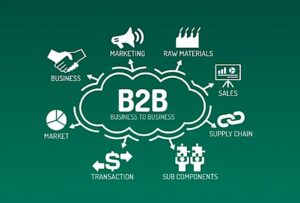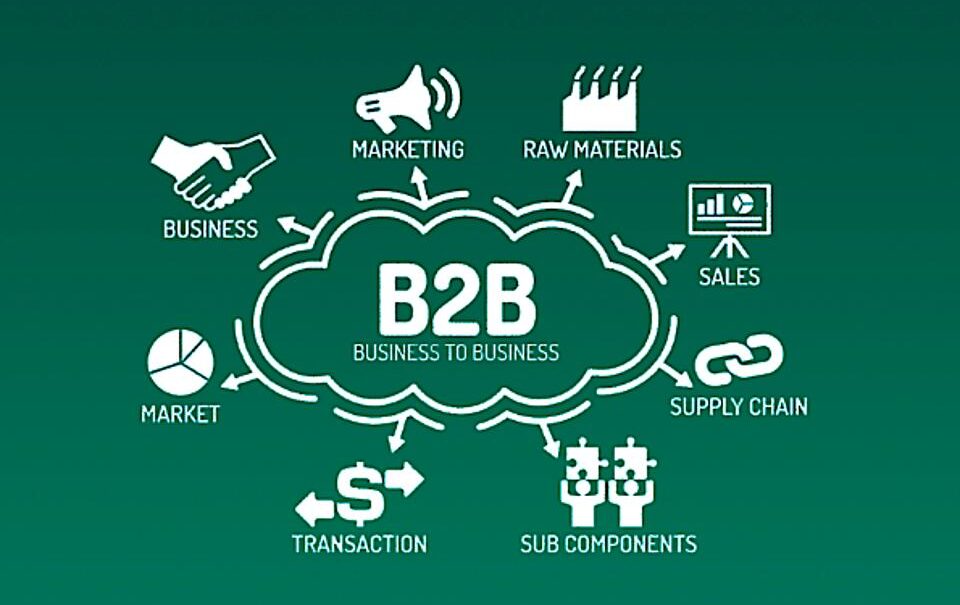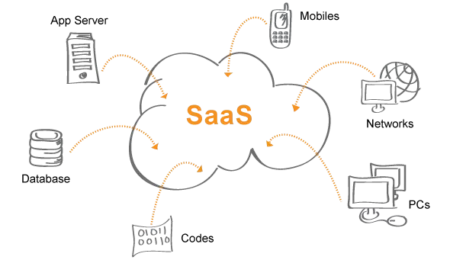Exploring the World of B2B (Business-to-Business): Benefits And Strategies

B2B (Business-to-Business) refers to the transactions that occur between two businesses, rather than between a business and a consumer. These transactions are the backbone of the global economy, as businesses rely on each other to purchase goods and services that help them operate more efficiently and effectively.
There are many different types of B2B transactions, from raw material purchases to finished product sales. Some common examples of B2B include wholesalers selling to retailers, manufacturers selling to distributors, and service providers selling to other businesses.
B2B transactions often involve higher volumes and larger financial commitments than B2C (Business-to-Consumer) transactions. This is because businesses are usually looking for long-term partnerships and are less likely to make impulsive purchases based on emotions or personal needs.
One of the main benefits of B2B transactions is that they can help businesses reduce costs by purchasing in bulk. This is because B2B transactions often involve larger quantities of goods and services, which allows businesses to negotiate better pricing and receive volume discounts.
Benefits of B2B
B2B, or business-to-business, refers to transactions between two businesses, rather than between a business and a consumer. There are several benefits of B2B transactions, including:
Increased Efficiency: B2B transactions often involve repeat business and established relationships, which can lead to streamlined processes and improved efficiency.
Larger Transactions: B2B transactions are typically larger than B2C transactions, which can result in higher revenue for businesses.
Stable Revenue Stream: B2B relationships can provide a stable source of revenue, as businesses often have long-term contracts and established purchasing patterns.
Niche Expertise: B2B companies often have specialized knowledge and expertise in their particular industry, which can lead to better product offerings and improved customer satisfaction.
Improved Customer Relationships: B2B companies can develop closer relationships with their customers and better understand their needs, leading to improved customer satisfaction and loyalty.
Lower Marketing Costs: B2B marketing often requires a more targeted approach, which can be less expensive than mass marketing campaigns.
Networking Opportunities: B2B transactions provide opportunities for businesses to network and collaborate with other businesses in their industry.
Overall, B2B transactions can provide a range of benefits for businesses, including increased efficiency, larger transactions, a stable source of revenue, and improved customer relationships.
Another advantage of B2B transactions is that they often involve repeat business, as businesses rely on each other to continue their operations. This can help create a sense of trust and stability between businesses, which can lead to more positive and productive business relationships over time.
Advantages of B2B business over B2C business
Stable and predictable revenue: Business-to-business (B2B) companies typically have fewer customers, but each customer is more valuable and generates more predictable revenue compared to business-to-consumer (B2C) companies, which often have to deal with fluctuations in demand.
Longer sales cycles: B2B sales cycles are typically longer than B2C sales cycles, but they also tend to result in larger contracts and a more stable customer base.
Stronger relationships: B2B companies often establish close relationships with their customers, which can lead to repeat business and recommendations to others in the industry.
Higher profit margins: B2B products and services often command higher profit margins because they are sold to other businesses that understand the value of the offerings and are willing to pay more for them.
Niche markets: B2B companies often operate in niche markets, which can result in less competition and greater pricing power.
Simplified marketing: B2B marketing can be less complex than B2C marketing because the target audience is usually more defined and easier to reach.
Repeat business: B2B companies are more likely to secure repeat business from customers, which helps to reduce the cost of acquiring new customers.
Scalability: B2B businesses can scale more efficiently and effectively because their customer base is more limited and their offerings are more specialized.
Here are some examples of B2B (Business-to-Business) businesses you can start:
IT Solutions and Services: You can start an IT company that offers various solutions such as website development, software development, cybersecurity, network solutions, and cloud computing.
Marketing and Advertising: Offer marketing and advertising services such as content creation, digital marketing, email marketing, and search engine optimization to other businesses.
Business Consultancy: Offer business consulting services such as market research, strategy development, and operations management to help other companies grow.
Supply Chain Management: Start a company that provides supply chain management services such as sourcing, procurement, logistics, and distribution.
Business Process Outsourcing (BPO): You can start a BPO company that offers services such as data entry, telemarketing, customer service, and back-office support to other businesses.
Office Supplies: Start a business that sells office supplies and equipment to other businesses, including stationery, paper products, office furniture, and technology.
Human Resources: You can start an HR company that provides services such as recruitment, payroll, benefits administration, and employee training to other businesses.
Energy Solutions: Offer energy solutions such as renewable energy consulting, energy efficiency, and carbon credits trading to other businesses.
These are just a few examples of B2B businesses you can start. The most important factor to consider when starting a B2B business is identifying a problem faced by other businesses in your target market and developing a solution to solve it.
In recent years, technology has had a significant impact on the world of B2B. The rise of e-commerce platforms and digital marketplaces has made it easier for businesses to find and connect with each other, no matter where they are located. This has opened up new opportunities for businesses to expand their reach and find new customers, both domestically and internationally.
Here are some examples of B2B marketplaces:
Alibaba: One of the largest B2B marketplaces in the world, Alibaba connects suppliers and buyers from all over the globe.
ThomasNet: A B2B marketplace that specializes in connecting suppliers of industrial goods and services with buyers in North America.
Amazon Business: Amazon’s B2B marketplace offers businesses access to over a million products and services, as well as special pricing and payment options.
MFG.com: A B2B marketplace for the manufacturing industry, MFG.com connects buyers with suppliers for everything from prototyping to production runs.
Kompass: A global B2B marketplace, Kompass helps businesses find suppliers and customers in more than 60 countries.
Made-in-China: A popular B2B marketplace for businesses looking to import goods from China, Made-in-China features over 200 categories of products.
EC21: A B2B marketplace that connects buyers and suppliers from around the world, with a focus on Asia and the Pacific.
TradeKey: A B2B marketplace that helps businesses find suppliers and buyers in over 240 countries.
Global Sources: A B2B marketplace connecting buyers with suppliers from Asia and the world, Global Sources features over 1.5 million products in over 40 categories.
IndustryNet: A B2B marketplace for the manufacturing industry, IndustryNet connects buyers with suppliers for everything from raw materials to finished products.
In conclusion, the B2B world is a complex and constantly evolving environment, but it is also one that offers many opportunities for growth and success. Whether you are a small business looking to expand, or a large corporation seeking new partnerships, there is a B2B opportunity out there for everyone. By staying informed and adapting to the latest trends and technologies, businesses can unlock the full potential of the B2B world and build strong, lasting relationships with other businesses.
Subscribe below to receive business related emails.
subscribe below to receive business/consumer related emails from sumbor.






